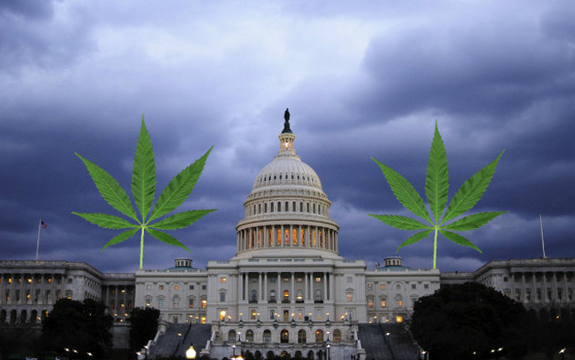Washington D.C. Decriminalizes Marijuana Possession: Not Legalization, but a Good First Step


Early this week, our nation’s capital took a major step in the fight against marijuana prohibition. In the city that houses the federal government–who is so hell-bent on maintaining their drug war—the D.C. Council voted 10-1 to decriminalize the possession of small amounts of marijuana – up to an ounce.
Unlike “legalization”, decriminalization refers to removing the criminal penalties for possession. In other words, jail time will no longer be on the table for those accused of possessing small amounts of marijuana.
Now, people ages 18 and over who are caught with less than one ounce of marijuana will face a $25 fine—the same as a parking ticket.
This is a major step in a major city, where Main Street reports D.C. had the highest arrest rate in the country for pot possession. The ACLU points out that the enforcement of marijuana laws—like so many drug laws—was disproportionately meted out against racial minorities. The ACLU also estimated that DC spent $26.5 million enforcing the possession law.
Even though pot usage among the races is similar—white folks like marijuana as much as black folks and Hispanics—arrest rates among minorities are measures above those of white people. Some 91 people arrested for pot possession in D.C. were black, making them eight times more likely to face arrest for marijuana than their white counterparts.
Before capital residents start sparking up, however, it’s important to note that it is still a crime to smoke or consume marijuana. If you’re caught smoking, you could face 60 days in jail and fines reaching $500. This is less than logical seeing as possession is now allowed.
Read: Feds Give Banks Green Light to Work with Marijuana Vendors
Perhaps as good as the law’s change to possession penalties is the fact that it removes the cop’s ability to search an individual solely on the suspicion that they possess marijuana. Like the “stop and frisk” laws of NYC, searching someone because they are “suspected” of marijuana possession has led to a sort of free-for-all, where cops often use flimsy evidence for their suspicion all in an effort to violate the civil liberties of the people, who again are largely black.
“Black men shouldn’t have to fear being searched just for walking down the street,” said Bill Piper, of the Drug Policy Alliance, an advocacy group that supported the bill. “And they shouldn’t face arrest or a heavy fine for doing something that affluent whites get away with every day.”
Decriminalization, like medical marijuana laws and recreational legalization, is a step towards making the healing benefits of marijuana available to all, reducing disparate enforcement within the criminal justice system, and a restoration of the people’s right to choose how they want to spend their time and recreation.
